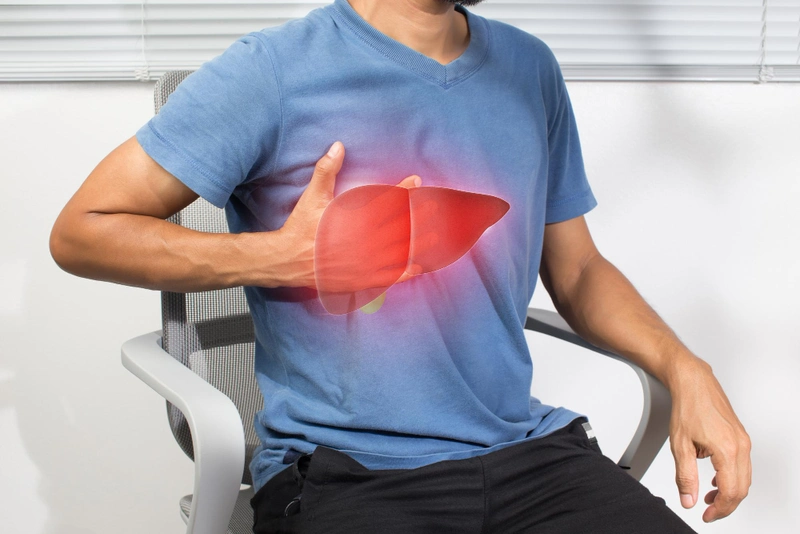- Published on: Jul 04, 2025
- 3 minute read
- By: Secondmedic Expert
Is Frequent Urination Always A Sign Of Diabetes?
We all need to use the restroom multiple times a day, but what if you're going too often? If you're constantly rushing to the toilet, especially at night, you may start to wonder: Is frequent urination always a sign of diabetes?
The answer is not so simple. While frequent urination (also known as polyuria) is a classic symptom of diabetes, it can also happen due to several other health and lifestyle factors. This article breaks it down for you in easy language.
What Is Frequent Urination?
Frequent urination means needing to pass urine more than 7–8 times a day, or waking up more than once at night to urinate. If this becomes regular and disrupts your daily life or sleep, it's worth paying attention to.
The Link Between Diabetes and Frequent Urination
Yes, diabetes can cause frequent urination. But here’s how it works:
-
In people with high blood sugar, the kidneys try to flush out the excess glucose through urine.
-
As glucose leaves the body, it pulls extra water with it.
-
This causes more urine production, leading to frequent urination.
This is often one of the first signs of Type 1 or Type 2 diabetes, especially when accompanied by:
-
Extreme thirst
-
Unexplained weight loss
-
Fatigue
-
Blurry vision
Is Frequent Urination Always a Sign of Diabetes?
No, not always. While it can be an early symptom of diabetes, frequent urination has many other causes, both harmless and serious.
Other Common Causes of Frequent Urination
1. Urinary Tract Infection (UTI)
UTIs are especially common in women and can make you feel like you have to urinate all the time, even if little comes out. It may also cause:
-
Burning sensation
-
Lower belly pain
-
Cloudy or foul-smelling urine
2. High Fluid Intake
Drinking too much water, tea, or caffeine can increase urine output. This includes energy drinks, green tea, and alcohol.
3. Overactive Bladder (OAB)
A condition where the bladder muscles contract too often. Symptoms include:
-
Sudden urge to urinate
-
Involuntary urine leakage
-
Night-time urination
4. Pregnancy
Hormonal changes and pressure from the growing uterus can increase urination frequency.
5. Diuretics (Water Pills)
These are medications given for high blood pressure or heart conditions that help the body get rid of excess fluid.
6. Stress and Anxiety
Some people urinate more often when they're nervous or anxious. It’s a part of the body’s fight-or-flight response.
7. Prostate Problems (in men)
An enlarged prostate can press against the urethra, making it hard to empty the bladder completely.
8. Interstitial Cystitis
A chronic condition causing bladder pain and frequent urination, often mistaken for a UTI.
When to See a Doctor
Frequent urination can be harmless or a warning sign. See your doctor if you have:
-
Sudden increase in urination without change in fluid intake
-
Excessive thirst or hunger
-
Pain or burning while urinating
-
Blood in urine
-
Sleep disturbances due to urination
-
Unexplained weight loss
-
Fatigue or blurred vision
These could point to diabetes or another medical issue needing attention.
Useful Lab Tests (Available via SecondMedic & Thyrocare)
To rule out diabetes or urinary problems, the following tests are recommended:
1. Fasting Blood Sugar (FBS) & Postprandial (PPBS)
-
Checks blood sugar levels in fasting and after eating.
2. HbA1c Test
-
Shows average blood glucose over the past 2–3 months.
3. Urine Routine & Microscopy
-
Detects infections, blood, sugar, or protein in urine.
4. Kidney Function Test (KFT)
-
Checks how well your kidneys are working.
These tests are affordable and available via SecondMedic with Thyrocare’s home sample collection.
Tips to Manage Frequent Urination
-
Limit caffeine, alcohol, and fluid intake close to bedtime.
-
Practice bladder training—gradually increase time between bathroom visits.
-
Do Kegel exercises to strengthen pelvic floor muscles (especially useful for women).
-
Maintain a healthy weight.
-
Manage stress and anxiety.
-
Follow up with regular blood sugar checks if you're at risk of diabetes.
Conclusion
Frequent urination can be frustrating—but it's not always caused by diabetes. It could be due to many different reasons, from harmless habits to treatable health conditions.
If you’re concerned about how often you're urinating, don’t guess—get tested. It’s the only way to know whether it’s diabetes or something else.
So to answer your question:
Is frequent urination always a sign of diabetes?
No, but it's one of the most important causes to rule out—so book your tests and consult a doctor today.
Read FAQs
A. No, frequent urination is a common symptom of diabetes, but it can also result from UTIs, high fluid intake, anxiety, medications, or hormonal issues.
A. Other causes include urinary tract infections (UTIs), overactive bladder, pregnancy, prostate issues, and diuretic medications.
A. Helpful tests include Fasting Blood Sugar (FBS), HbA1c, Urine Routine, and Kidney Function Test. These are available via Thyrocare and SecondMedic.
A. See a doctor if it disrupts sleep, occurs without extra fluid intake, is accompanied by pain or fatigue, or includes blood in urine.
A. Yes, emotional stress can activate your body’s fight-or-flight system, leading to increased urination, especially in anxious individuals.
Our Services
Request A Callback
Recent Posts
Habits That Silently Damage Your Liver
Aug 13,2025
How to Detect and Manage Early Diabetes at Home
Aug 12,2025
What Is Covered in Employee Wellness Plans?
Aug 11,2025
Top 5 Lab Tests You Can Book from Home in India
Aug 07,2025
Is Curd Good or Bad for Acidity?
Aug 02,2025










